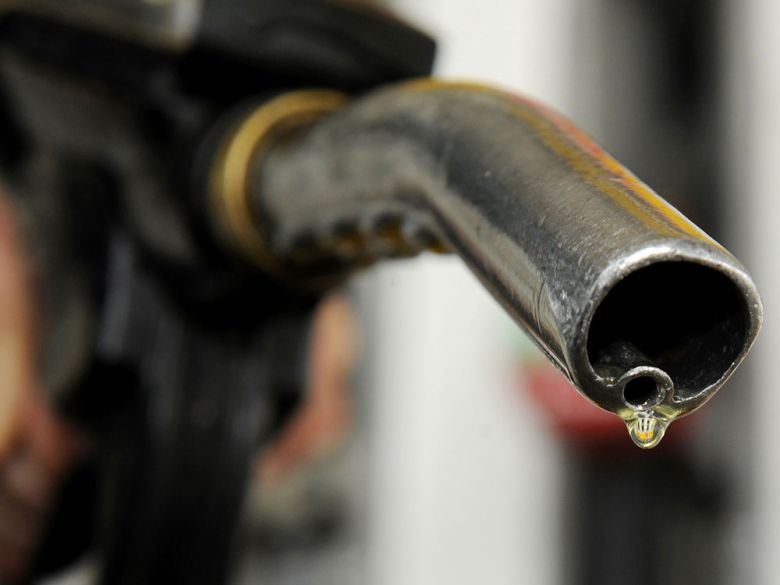Take my hand, will you, and I will lead you through the wardrobe to a magical place, where the only energy is clean energy, where Tesla-driving Quebecers signal as they change lanes, and the only emissions are of a private nature. Now, as we walk through a pristine old-growth forest we come upon a great eminence, a splendid figure who picks absent-mindedly at a glorious cape made entirely of recycled plastic straws. What is this place and who is this extraordinary man?
Yves-François Blanchet has declared that he will not help Alberta ‘create an oil state,’ suggesting that the Quebec economy isn’t itself greased and fired by decayed dinosaurs
It is Imaginary Quebec of course, home to Yves-François Blanchet, leader of the Bloc Québécois. Here, he speaks for all of Quebec. Here he has declared that he will not help Alberta “create an oil state,” suggesting that the Quebec economy isn’t itself greased and fired by decayed dinosaurs. If we had more time I would say “Pull up a plaque-encrusted neuron and sit a while in his fertile imagination.”
But time is fleeting, and we must hurry. Reality waits for no one, not even for this minor but magnificent ruler of Imaginary Quebec.
Now that we are back to the world of facts and truth let’s tour real Quebec in the province’s best-selling vehicle, the Ford F-150, a gas-guzzling stud of a truck. You’ll see a lot of them running around rural Quebec, often with a dead moose in the back. It is interesting and relevant that rural Quebec is where the Bloc Québécois won almost all its 32 seats. The Dodge Ram and GMC Sierra are also big sellers in the Quebec backwoods, the sixth- and seventh-best sellers in the province, respectively.
Thankfully, torrents of oil pour into Quebec to power those trucks and to keep the Quebec economy moving. Much of that oil comes from countries where you’ll be severely punished for saying the wrong thing, kind of like on Sportsnet. Much of it comes up the St. Lawrence in tankers, the same kind of tankers that are banned from taking Alberta oil off the north coast of British Columbia. Quebec’s biggest source of oil is the Alberta oilsands. It travels to refineries in Montreal via a long tube known as a pipeline.
Quebec’s gasoline consumption is second only to Ontario’s and is growing
That oil is then turned into gasoline and it’s a good thing, too. Quebec’s gasoline consumption is second only to Ontario’s and is growing. In 2013 Quebec drivers consumed 25,000 cubic meters of gasoline every single day. By 2018 that was up to 26,300. Remember, 70 to 80 per cent of GHGs in the fossil fuel transportation value chain are created by vehicle combustion. The remainder you can pin on producing and transporting the oil. It turns out that in this world of hard facts, in almost every respect, Quebec is itself an oil state, even if Quebecers let other jurisdictions produce the oil that they then burn in their trucks and SUVs.
Besides, the 32.5 per cent of Quebecers who voted Bloc did so for many reasons, including concerns about the economy, immigration, Quebec identity and health care. We doubt that a plaid-jacket-wearing, F-150-driving welder from Chicoutimi voted Bloc because of his deep admiration for Greta Thunberg or because he could see himself with a moose strapped to the hood of the Tesla that he doesn’t own.
No, Quebec is a major importer, refiner and consumer of oil. Quebec is riddled with pipelines. Quebec drivers love gas-guzzling trucks. Quebec receives billions of dollars in transfer payments every year thanks to Alberta and Saskatchewan oil production. Quebec’s consumption of oil and gas will only grow as its population grows. Pretending Quebec will soon be off oil or doesn’t rely heavily on oil-generated transfer payments is a fairytale fit for the nursery, not for serious public discourse. Awaken, Mr. Blanchet! Quebecers are up to their knees in oil.
Now let’s have a discussion based in that reality.
Monte Solberg, the principal at New West Public Affairs, is a former Alberta MP and cabinet minister.






























